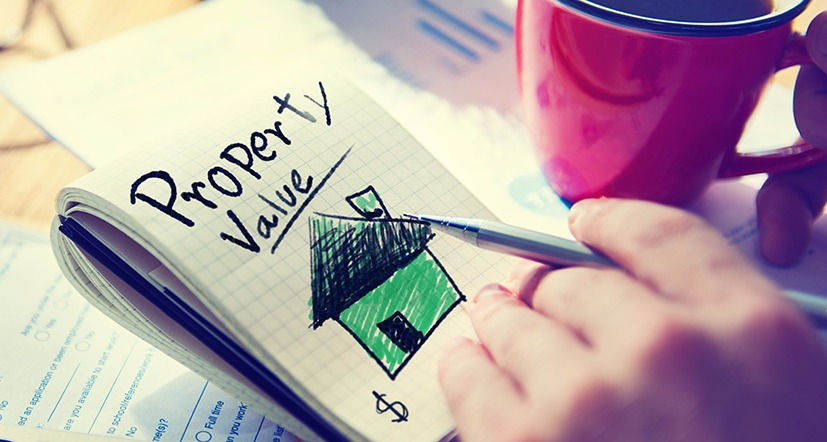Assessed Value vs. Market Value: What's the Difference?
- theshannonmccarthy
- Jun 1, 2017
- 4 min read
Homes don't come with sticker prices set in stone. Rather they are moving targets - that's what makes buying and selling real estate so fun! (Or frustrating, depending on your perspective.) And, as a buyer or seller, you will likely hear two "prices" thrown about: assessed value and market value. So what's the difference?
While assessed value and market value may seem similar, these numbers can be different - typically assessed value is lower - and they're used in distinct ways as well. So, let's clear up any confusion so you can wield these terms to your advantage.

What is Market Value?
The technical definition of market value is "the most probable price that a given property will bring in an open market transaction." Or, in plain English, “It’s the price that a buyer is willing to pay for a home, and that a seller is willing to accept.”
Real estate agents are trained to pinpoint a home's market value, which is done by looking at a variety of characteristics, including the following:
External characteristics: Curb appeal, exterior condition of the home, lot size, home style, availability of public utilities.
Internal characteristics: Size and number of rooms, construction and appliance quality and condition, heating systems, and energy efficiency.
Comps or comparables: What similar homes in the same area have sold for recently.
Supply and demand: The number of buyers and the number of sellers in your area.
Location: How desirable is the neighborhood? Are the schools good? Is the crime rate low?
A home's market value often is a good starting point for all kinds of things. For one, listing agents use market value to help sellers come up with a fair asking price for their home. And, since buyers shouldn't just trust what sellers say their place is worth, their own agent can also estimate the home's market value and come up with a different price that they think their clients should offer. No number is right or wrong; the ultimate deciding force is what price a buyer and seller are willing to shake hands on to close the deal.
What is Assessed Value?
When trying to understand the assessed value of a property, you must know who is doing the assessing and why the property is being assessed.
Municipalities, mostly counties, employ an assessor to place a value on a home in order to levy property taxes on it. To arrive at a value, the assessor (similar to a real estate agent) looks at what similar properties are selling for, the value of any recent improvements, any income you may be making from, say, renting out a room in the property, and other factors - like the replacement cost of the property if, God forbid, it burns down in a fire (which sounds dark, but assessors are thorough professionals who consider every possibility).
In the end, the assessor comes up with a value of your home. Then, he multiplies that number by an “assessment rate,” a uniform percentage that each tax jurisdiction sets that is typically 80% to 90%. So if, say, the market value of your home is $400,000 and your local assessment rate is 80%, then the assessed value of your home is $320,000.
That $320,000 is then used by your local government to calculate your property taxes. The higher your home's assessed value, the more you'll pay in taxes. You can check with your local tax assessor for a more exact figure for your home, or search by state, county, and ZIP code on publicrecords.netronline.com.
What Assessed and Market Values Mean to You?
While a home's market value can rise and fall precipitously based on local conditions, assessed values are typically more immune to fluctuations. (Some states prohibit the assessed value from rising more than 3% a year even if market value increases.)
But the bottom line is, don't get bent out of shape if you hear your assessed value isn't as high as you'd hoped. Assessed value is used mostly for property tax purposes. Home buyers and sellers, on the other hand, look more to market value instead.
However, assessed value can come up when you buy or sell a home because this number, unlike the more subjective market value, is public knowledge contained in property records. So, rising assessed values bode well when home sellers try to justify their sale price to a buyer: “Hey, the assessed value is $310,000, and I’m only asking $320,000.” Likewise, buyers can use assessed value to justify a lower price: "Hey, the assessed value is $260,000, and you're asking for $300,000. What gives?"
But the thing to remember with both assessed and market value is that at the end of the day, the price of a home is all in the eye of the beholder. The only number that matters is what a buyer and seller can agree sounds right, so don't take any number you see too seriously.
YOUR TURN
What has your experience been with market value vs assessed value when selling or buying your home? Sound off on the Shannon McCarthy Team Facebook Page or on our Twitter, Instagram or LinkedIn feeds. And don’t forget to subscribe to our monthly HOME ADVICEtm email newsletter for articles like this delivered straight to your inbox. You may unsubscribe at any time.






















Comments